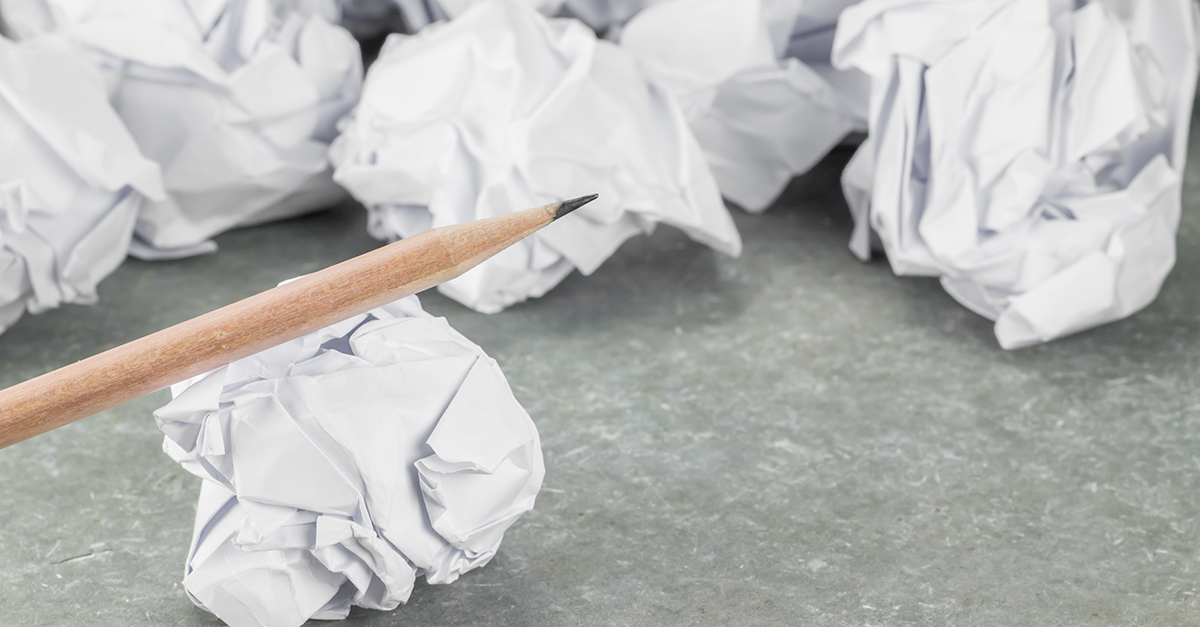
As we roll into a new year, it is common to take a moment to self-reflect over the previous year(s). In doing so, particularly when it comes to our failures, we realize that there have been both moments and times where we wish the clock could be re-wound. Recollecting our snafus often causes a visceral reaction: our pulse to skips a beat, our mouth goes dry and we feel self-recrimination. Because we live in a society that focuses on self-perfection, our human nature allows for gaffes in others but not within ourselves.
We all know the familiar phrases such as to err is human, failure is the stepping stone to success, a life without setbacks is a life not lived, etc. And yet, the longest distance is the one between our heads and our hearts. Hence, we understand that botching up means that we are challenging our world, but do we actually feel invigorated by the experience? How do we move from the intellectual exercise to our heart, and genuinely feel positive about our mistakes?
Recognizing and owning our blunders is the initial step. Transparency, pain, reflection and practice are the foundational blocks for erratum-generated progress. Whether it is through others pointing out our bumbles or via catching them ourselves, we must first acknowledge the problem. This clarity process is more than just admitting when we are wrong, but also seeking out others to aid us in scrutinizing our activities in a positive manner.
Once the inadvertent error is identified, humiliation and embarrassment “pain” usually ensues. Physiologically, this discomfort is an indicator of an underlying problem. Diagnosing the source of the pain is the first step in treating the problem. The same is true concerning mishaps. We need to live with the feeling long enough to understand what happened, what led us to the error and what we could have done differently.
From there we can move to a process of reflection that allows us to create personal honesty. Such moments are ripe with learning opportunity. Through transparent introspection, even if causing ourselves discomfort, we can progress towards a better state of being and accomplishment. Learning about what went wrong may hasten our understanding of how to fix the problem. A lesson learned from a failure is a lesson rarely forgotten. Unfortunately, this process of self-reflection after a blunder is not always intuitive to our nature. Therefore, it behooves us to turn to the science of habit formation. Only through continuous practice will we form habits that create positive emotional feelings and learnings when we fail.
Forming habits has three stages that work together, creating a neurological loop that governs any habit, the “Habit Loop.” First, there is a cue. Next is a triggering event that tells our brains which habit to use. Then, routine (physical, mental or emotional) follows the signal. Therefore, whether emotional or physical, within a habit cycle, a cue leads to a routine reaction which is rewarded with some type of positive stimulus. Finally, there is the reward, which helps us remember if this particular loop is worth remembering. Therefore, whether emotional or physical, within a habit cycle, a cue leads to a routine reaction which is rewarded with some type of positive stimulus.
Identifying the mistake is the cue. Transparency and “living in the pain” while we discern our shortcoming is the routine. The reward is the learning and progress obtained through this process. Just like any habit change, it requires practice and patience. Mistakes will occur even within the habit creation. But creating and ensuring the habit, will reinforce that we will learn from our mishaps.
Growth, Servant Leadership and co-creating a better world will require us to embrace situations and ideas that are foreign and uncomfortable. I guarantee that if we are genuinely motivated to make a difference, failures will occur. Let us prosper from our shortcomings and remember that we are where we are today because others were willing to learn and make mistakes. Mistakes do matter.
